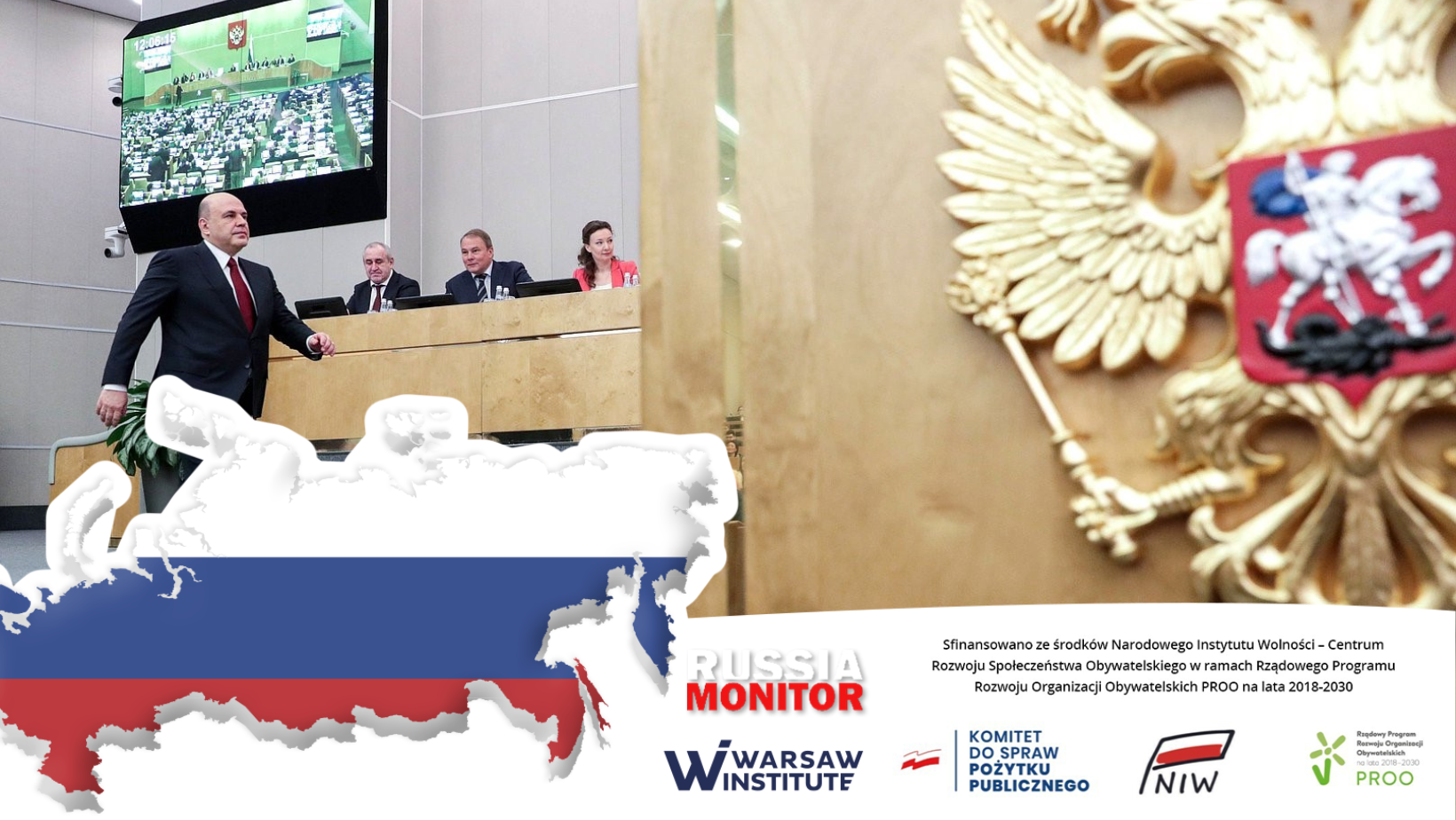
Russia Monitor is a review of the most important events related to Russian internal and external security, as well as its foreign policies.
Date: 27 March 2023 Author: Grzegorz Kuczyński
Russia’s Budget Deficit Soars Considerably As Energy Revenues Drop Sharply
The beginning of this year looks gloomy for the Russian federal budget. Russia’s monthly fiscal deficit reached a record high amid the EU-imposed ban on seaborne crude oil exports and the increasing operational cost of Russia’s invasion of Ukraine. The government is not likely to stick to the budget nor will it plug a budget shortfall. However, this does not prompt any disaster for Russia––at least now.

The Russian budget exceeded its planned ceiling for 2023 in the second decade of March. Russian Prime Minister Mikhail Mishustin said Russia’s budget deficit would gradually return to planned amounts after a jump earlier this year. The fiscal gap reached a record 3.9 trillion roubles. exceeding the earlier forecast of 2.9 trillion roubles. Russia’s budget deficit is set to reach 4.5 trillion roubles, or 3 percent of the country’s gross domestic product. Russia’s finance ministry yet was sticking with plans to post a budget deficit of no more than 2 percent of GDP. It was obvious Russia would not manage to plug a budget deficit while being unable to offset the blow to its economy from western sanctions on gas and oil and soaring military spending. But as it turned out in January, Russia’s revenues dropped 25 percent while its spending soared 59 percent. In February and March, the Russian finance ministry yet had to tighten its belt as the deficit shrank by 50 percent in February month-to-month. It is obvious that budgetary risks are increasing on the revenue side. Tax revenue from oil and gas plunged 46 percent in February from a year ago, the Russian Finance Ministry reported. Russia’s revenues from oil and gas exports dropped by nearly 40 percent in January as price caps and Western sanctions squeezed the proceeds from energy resources, according to the International Energy Agency. Russia blamed the drop on falling prices for Urals and a decline in natural gas exports. However, in light of the recent EU sanctions and the bloc’s gas price cap, the budget will no longer be able to rely on commodity exports. In addition, gas supplies stopped flowing through the Baltic while gas transit via Ukraine saw a drastic reduction. The budget figures look bad while Mishustin’s remarks did not look optimistic. Russia is unlikely to suffer a budget disaster this year, but matters could get worse if this tendency continues next year.
Support Us
If content prepared by Warsaw Institute team is useful for you, please support our actions. Donations from private persons are necessary for the continuation of our mission.
_________________________________
All texts published by the Warsaw Institute Foundation may be disseminated on the condition that their origin is credited. Images may not be used without permission.
















